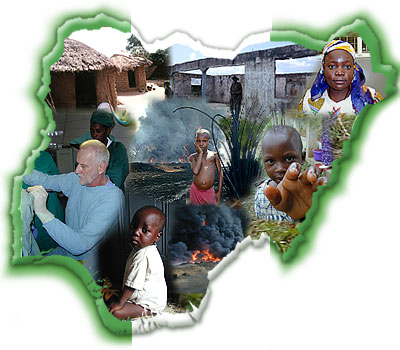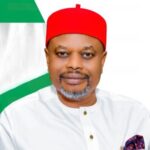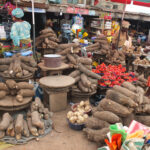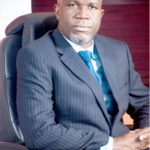Against a background of pervasive poverty, corruption and widespread unemployment, nearly three decades of military rule in Nigeria saw a massive deterioration of Nigerian economy and weakened development capacity at all levels. Right wing democracy was presented as the only framework within which economic and social development expectations could be facilitated because, it is based on consent of popular participation and capitalism.
The transition to civil rule in 1999 was therefore accompanied by high expectation of economic development, job creation, sustainable income for citizens, food security and re-industrialization for self-sufficiency. But the anticipated opportunity seems to have given way to disillusion, disenchantment and unprecedented wealth and resources distribution inequalities. These have been attributed to crude economic policies, skewed political relations and unearned wealth in the form of corrupt accumulation of state funds and resources by a fraction of politically exposed individuals at the corridor of power.
- 600 Nigerians stranded in Saudi Arabia call for help to return
- Quit notice: Youths attack Fulani communities in Oyo
On the 1st of January, 2021, President Muhammadu Buhari in his New Year message broadcast re-emphasize his administration’s determination to revamp the ailing and recess Nigerian economy. Our concern in this piece is the “Revamping of the Economy”, that formed a strong part of the President’s message of hope to Nigerians in the New Year 2021. This aspect is the greatest takeaway for any concerned Nigerian at any level. All others issues are very cogent and equally important on their own, but the foundation of all is the economy’s distortion and disarticulation necessitating others.
For instance, the #EndSars issues, youth’s employment and empowerment; national cohesion and unity; human rights, good governance, insecurity, respect for human rights and justice. Without, the economy standing sure and better for all Nigerians, we may find ourselves in the square one and continue in the circle of crisis. The greatest cry of all Nigerian is about the high cost of living, inflation on all sides, inequality and limited economic opportunities as well as dead industrial sectors.
Revamping the Nigeria’s economy is a clarion call and indicting challenge President Muhammadu Buhari, the 36 state governors and not excluding the Local Government Council Chairs – not minding whether they are elected or appointed – must tackle.
Equally important in this task are members of the National Assembly (Senate and Federal House of Representative) as well as the states’ assembly members. Sincerely, revamping the economy does not stop at the presidency desk alone; the entire federation governance structures must be involved; federal, state and local government inclusively.
The established introductory part of this essay pin points the much expectations at the coming of democratic government in 1999, and the failure or disappointment that followed it up till date.
So, the president has a chance to revamp the economy far from the abysmal and poor performance it is today.
This is the redemption time for the Buhari’s administration and PDP member’s presently occupying official positions to turn things around for good economically.
The decades of de-industrialization of the nation are a must that, for in true sense “revamping the economy” would entail industrialization and linking our primary, secondary and tertiary sectors products for value chain impacts.
Electricity supply to its height is the bedrock to this revamping of the economy, and this cannot be overemphasized.
It is important to state here that, many should not be carried away with the recent IMF ranking of Nigeria as the 26th largest economy and biggest GDP of $442,976 billion. Poverty, unemployment and high inflation have brough about increase in food prices, transportation and service charges. One critical reading through the report and ranking portray a mirage of the true reality on ground.
What should be done? I trust the presidency understands so well that revamping the economy is not a tea party affairs neither is it a talk shop experiment.
Revamping Nigeria’s economy is a fight between light and darkness to save the Nigerian nation’s soul; it is a fight between sabotages and patriotic Nigerians.
It’s going to be a war of policies, action and implementations. Moreso, it is going to be a task of clearing the stable of unfriendly friends and enemies of Nigeria’s economic development.
Having said this, in my humble submission, these following could help. First, the Nigeria state needs to go back to the basis of governance; that is, government’s involvement in enterprises and businesses. These sectors must not be left in the hands of private individuals and groups alone. In this regard, the government must see that it’s action and policies as business of the state for the overall benefits of her citizenry.
Secondly, revitalizing many of the government’s moribund industries is very apt for critical reactivation that would bring about jobs and stability of the employment challenges.
Lastly, the much talked about diversification of the economy must be dynamic and impacts lubricants, especially as the focus has been on agricultural sector. A much dynamic diversification of the economy must be multi-linkages of agriculture, research, education, manufacturing, transportation, services and export.
And I admonish the presidency to note this; the economy has no courtesy; revamping it needs no gentleman approach.
Olamilekan writes via [email protected]

 Join Daily Trust WhatsApp Community For Quick Access To News and Happenings Around You.
Join Daily Trust WhatsApp Community For Quick Access To News and Happenings Around You.


